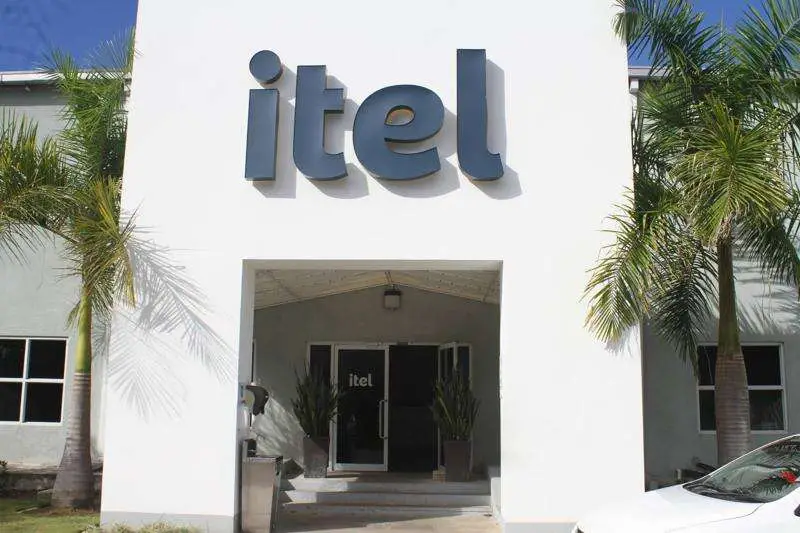
US$1-billion targeted for BPO
JAMAICA is targeting revenues of over US$1 billion from the global services sector and employment in excess of 70,000 by 2025, according to a Digital Global Services Strategy plan tabled in Parliament last week.
According to the document, the country’s strategy recommendations for 2021-2025 is to see employment in the global services sector increase from 43,167 in 2021 to approximately 70,400 in 2025 and revenue of US$1.15 billion. That revenue target would put the global services sector as the third-largest earner of foreign exchange for Jamaica behind tourism and remittances. The employment growth is expected to average 13 per cent while revenues are forecast to grow by 16 per cent, reflecting the expected contribution of higher value services into the sector.
It proposes doing so by:
– Repositioning of Jamaica as a higher value destination while building on its existing strength as a credible nearshore customer service destination
– Continued employment generation across the outsourcing value chain
– Drive both foreign and domestic investments growth into the sector
– Improve sector revenue generation to support government revenue streams
– Improve domestic service provider participation in the sector
– Encourage domestic entrepreneurship especially within digital services space
– Support overall economic diversification
According to the document, Jamaica’s global services sector had 75 companies in March 2020, employing 37,000 people and earning US$600 million in four key locations, Montego Bay, Mandeville, Portmore and Kingston.
In fact, the Digital Global Services Strategy outlined that Jamaica’s global services sector can help the country to reduce its reliance on tourism, which now contributes about 30 per cent of the country’s gross domestic product (GDP), arguing that “Jamaica can leverage its mature BPO services sector to mitigate the overall impact” of the pandemic on the tourism sector. “Steps to further increase the BPO sector employment base to include more professionals and broadening the scope of services by adding emerging digital services can significantly assist the country in overcoming some of the challenges as well as better aligning the current BPO sector in line with global growth patterns.”
It said this can be achieved by targeting four main areas:
1) Knowledge process outsourcing (KPO) through market research services, business research/financial research services, digital content management, content strategy, content creation, content distribution
2) Business process outsourcing (BPO) through omni-channel customer services
3) Information technology outsourcing (ITO) through mobile and web development services and digital commerce, and
4) Vertical specialisation in areas such as tourism specialisation and digital government solutions
It is outlined that the country would need to spend US$7.5 million between 2021 and 2025 on targeted initiatives under the digital ecosystem and human capital as these two pillars are expected have the maximum impact towards the attainment of the set objectives. Areas that it highlight this expenditure for include expanding and strengthening the current industry association mandate, realigning sector policies and regulations, develop a single window digital sector industry platform, improving the image of the global services sector, developing online training capacity, easing travel and stay requirements for those hired from abroad, support the expansion of the national broadband infrastructure and incentivising the domestic sector to streamline its incentive process.
Over the past five years, the Jamaica global services sector has been averaging a 20 per cent annual employment growth which is among the highest in the world. The high growth rate also augurs well for the overall economy due to its multiplier effect on other associated sectors and service segments. However, the call centre (CC)/BPO segment, which forms the mainstay of the current Jamaican global services sector with over 80 per cent of the existing service offerings, has been the most impacted by the emergence of digital technologies especially artificial intelligence (AI) and robotic process automation (RPA).
Globally, the CC/BPO segment has seen a marked decline as a key employment source as adoption of digital technologies especially in delivering lower value services has significantly reduced the need for human resources. On the other end, the higher value services segment is witnessing a much higher demand for skilled resources as the same set of digital technologies is aiding the expansion of the global services offerings by bringing more services under the global ambit of global services delivery.
“As digital technologies and related services become mainstream, service providers are continuing to incline towards locations with the ability to support a ‘digital service delivery ecosystem’, the document explained. It continued: “While operating costs, availability and scalability of talent and competitive business and policy incentives were the key drivers during the past two decades, these factors have become much less critical to service delivery. Service providers and end clients are now increasingly considering locations on its digital infrastructure, digital ecosystem, digital skills, business environment, etc, with cost competitiveness playing a much less critical role. Jamaica must now take steps to reposition itself and focus on building its reputation and capability by transitioning from models that solely focus on cost arbitration and repetitive workflows, to providing an enabling environment for innovation and skills evolution.
As Jamaica pushes towards attracting and delivering higher value services and change its service segment contribution from 80:20 to 60:40 (low value: higher value services), the sector is expected to register a much higher revenue growth starting in the next two-three years (once the related ecosystem has been developed).
According to the World Trade Organization (WTO), for 2018 (latest available data published in 2019), global ICT services trade was valued at US$ 1.756 trillion with US$ 438 billion in cross border exports. It further adds that the ICT sector has “recorded remarkable growth in the last decade, with IT services expanding by 11 per cent annually on average. IT services were resilient during the financial crisis…” indicating to the resiliency of the sector.
India is currently the biggest centre for the global services sector in the world, accounting for 55 per cent of the sector. For 2019, it accounted for 24 per cent of the 271 new global delivery centres which were set up worldwide (by US headquartered firms) with Europe accounting for 29 per cent. India is home to over 1,400 shared services organisation (SSO) or about 50 per cent of the global total.



























